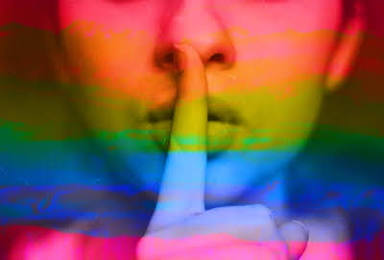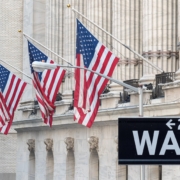The LGBTQ+ Crackdown: How Laws Are Silencing a Community in Real Time
PART 1: The LGBTQ+ Crackdown
There is a silence creeping across the country. A silence not born of stillness, but of forced erasure—the scraping out of identities, the extinguishing of lights that once flickered defiantly in public spaces. Laws are not passed with the thundering decree of dictators; they come softly, slipped between pages of legislation, whispered through press briefings, casually enacted as if they were mere administrative necessities. And yet, their impact is deafening.
Bans on public LGBTQ+ expression. The systematic dismantling of protections against discrimination. The quiet but deliberate reshaping of social norms through political policy. The Trump administration, emboldened by a coalition of religious hardliners and cultural reactionaries, is not just restricting LGBTQ+ rights—it is rewriting the rules of public existence. What once was celebrated is now condemned. What once was whispered is now unspeakable.
But is this Christlike? Would Jesus, who dined with outcasts and embraced those deemed “unclean” by society, approve of laws that isolate and marginalize? The same man who stopped a crowd from stoning a woman (John 8:7), who spoke of loving one’s neighbor as oneself (Mark 12:31), who healed the sick regardless of their status—how does His example align with policies rooted in exclusion and fear?
The Legislative Purge
The first cuts were surgical, deliberate, designed to inflict the deepest wounds with the least amount of public outcry. New restrictions on LGBTQ+ speech and assembly have been enacted under the guise of “protecting children” and “maintaining public decency.” Cities across conservative-led states have begun enforcing bans on pride events and any public expression of LGBTQ+ identity that could be interpreted as “indoctrination.” This is not just about visibility—it is about erasure.
Simultaneously, workplace discrimination protections are unraveling. Executive orders have rolled back policies that once shielded LGBTQ+ employees from being fired based on their identity. The right to exist openly in a professional space is now precarious. In multiple states, landlords have been emboldened to deny housing based on sexual orientation, knowing that federal protections have been weakened. The walls of safety are closing in.
Then came education restrictions—a more insidious form of erasure. Under new laws, schools are prohibited from discussing LGBTQ+ topics in any capacity. Teachers who once championed inclusivity now self-censor, fearing lawsuits or job loss. LGBTQ+ student groups have been dissolved under the pretense of “neutrality,” stripping queer youth of their only refuge. The message to young people is clear: your identity is not valid here.
On a broader scale, federal support for LGBTQ+ anti-discrimination policies is waning. Healthcare protections are disappearing, leaving queer individuals vulnerable to medical discrimination. Adoption agencies, now protected under new religious exemption laws, can refuse services to same-sex couples. Trans and nonbinary individuals face increasing bureaucratic barriers to changing gender markers on official documents, making basic aspects of daily life—from securing employment to boarding a flight—more difficult, humiliating, and, in some cases, impossible.
But where in the Bible does it command followers to refuse care to the sick? Did Jesus deny healing to the Roman centurion’s servant (Matthew 8:5-13) because he was an outsider? Did He turn away the bleeding woman (Luke 8:43-48) because society deemed her unclean? Or did He reach out, time and again, to those whom the religious elite sought to exclude?
The Social Consequences: A Nation Unraveling
What happens to a society when an entire demographic is systematically told they do not belong? When their mere existence is framed as dangerous, inappropriate, or unworthy of public acknowledgment? The consequences are not just legal—they are deeply human.
With the government setting the tone, hate crimes have surged. Reports of targeted attacks against LGBTQ+ individuals have increased dramatically, with perpetrators emboldened by a political climate that frames queer existence as a threat. Law enforcement, under pressure from conservative leadership, has deprioritized investigations into these crimes, leaving victims without justice and communities without protection.
Social spaces that once welcomed LGBTQ+ individuals are shrinking. Libraries and community centers that host LGBTQ+ support groups have lost funding or been outright shut down. Nightclubs—historically some of the only safe havens for queer people—face increased scrutiny and, in some cases, forced closure due to newly imposed “decency” regulations. The places once considered sanctuaries are being systematically dismantled.
In conservative regions, LGBTQ+ youth are increasingly isolated. With educational restrictions preventing any acknowledgment of their identity and community spaces disappearing, many are left without role models, support, or even language to describe who they are. Depression and suicide rates, already disproportionately high among LGBTQ+ youth, have skyrocketed. This is not just a rollback of rights—it is a rollback of lives.
But if Christians claim to follow the teachings of Jesus, should they not be the first to provide refuge? Should they not be the ones opening doors, not closing them? Jesus sought out the outcast—the Samaritan woman at the well (John 4:7-26), the tax collectors, the sinners—those deemed unworthy by religious authorities. Would He stand in favor of policies that cast the most vulnerable further into despair?
Instead of pushing LGBTQ+ individuals further into the margins, how might Christians extend true love, compassion, and grace? Could churches become places of refuge rather than rejection? Could Christian leaders listen rather than legislate? Could the Gospel be lived out not in condemnation, but in the radical inclusion Jesus Himself modeled?
What if Christians chose to serve rather than shun? To break bread with those they do not understand, just as Jesus did? Could communities shift from spaces of judgment to sanctuaries of healing?
The Broader Implications: Who’s Next?
Don’t want to think about WWJD? That’s fine, think about this: the greatest lie ever told about oppression is that it stops with one group. It never does.
Laws that police queer existence will eventually police all behavior deemed nonconforming. The targeting of LGBTQ+ people is a litmus test—one that, once accepted, sets the precedent for broader social control. Today it is LGBTQ+ rights. Tomorrow it is artistic expression. The day after, perhaps, it is religious freedoms themselves. No one is safe when oppression is codified into law.
History has shown that legal mechanisms of oppression can swing back in unexpected directions. Today, these laws are wielded by Christian nationalist groups to suppress LGBTQ+ individuals, but what happens when another political force seizes control? If the government can silence one group in the name of “public morality,” it can—and will—silence others. The same restrictions on free speech, assembly, and workplace protections could one day be used against the very Christian communities who now wield them.
What Now?
The worst thing we can do now is assume that this is temporary.
History teaches us that the greatest threats to freedom do not announce themselves with grand declarations. They seep in through the cracks, altering the landscape of daily life until one day, without realizing when it happened, we wake up in a country that no longer allows us to exist.
Part 2 coming soon: “The War on Religion? Or the War BY Religion?”










Looking forward to part 2.
Also: Action plan for allies, Xian and non.